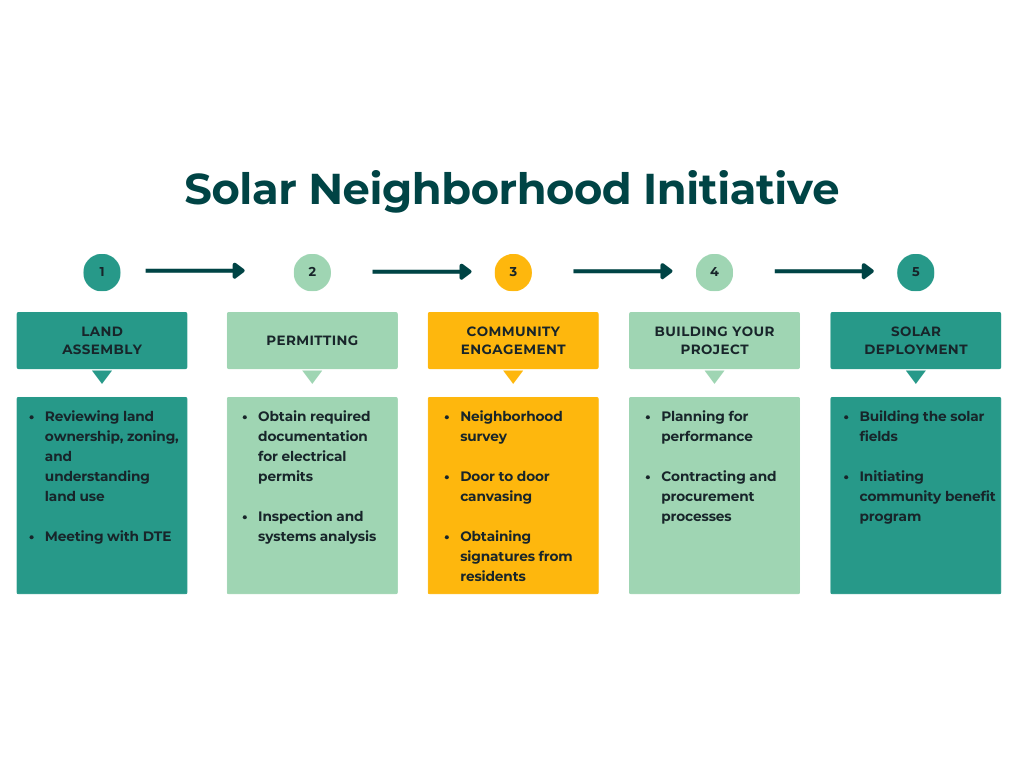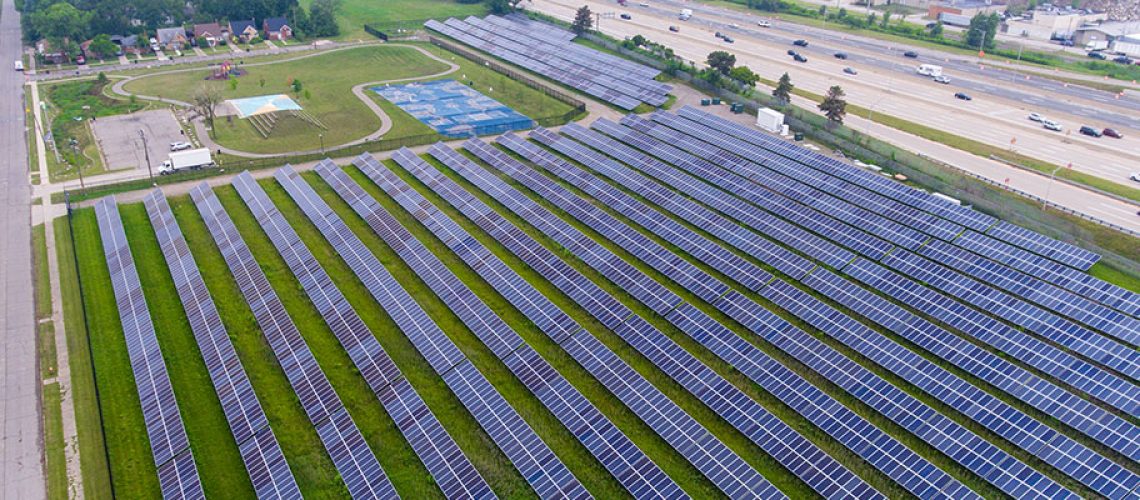Three Detroit neighborhoods were chosen as sites for solar facilities. The City plans to build 33 MW of solar to power its municipal buildings.
The City of Detroit announced it has selected three sites for its Solar Neighborhoods initiative, which seeks to develop solar facilities on mostly vacant neighborhoods throughout the city.
Detroit city-owned buildings use a collective 33 MW of electricity. The city seeks to meet all this demand with new solar projects distributed throughout the metro area.
Phase one of the project will add 21 MW of capacity across the Gratiot Findlay, Van Dyke/Lynch, and State Fair neighborhoods. Lightstar Renewables was selected to develop 10 MW of the portfolio. Site maps can be found here.
Under the agreement, the solar facilities will be operated for 25 to 35 years. When the arrays reach the end of their useful life, the contract calls for developers to remove the equipment and return the property to a green field.
A coalition of local nonprofits, environmental groups, energy experts and solar developers are participating in the program. The groups engaged in a several-months-long community engagement program to explain its benefits and reach residents.
Projects are planned in mostly vacant neighborhoods. Residents located in the footprint of the proposed solar facilities are offered compensation equal to double the market value of their property (or $90,000 minimum) along with moving expenses and relocation services. Renters will receive 18 months’ worth of rent and relocation services. The initiative includes energy efficiency upgrades for surrounding homes, with a minimum value of $15,000 on average per home.
Each acre contributed will be provided with up to $25,000 in community benefits for energy-efficient upgrades, prioritizing affected homeowners and renters within the solar array footprint. Neighbors can elect to install energy bill saving measures like new windows, roof repairs, energy efficiency, home insulation, smart thermostats, battery back-up, and residential solar panels.
For the next steps, the Office of Sustainability, The Department of Neighborhoods, the program’s Neighborhood Solar Partners and the solar developers to work with the community and get their insight into how the sites will look and operate. There will be a negotiated and approved agreement between the developer and residents, which will include what the design, vegetation and maintenance will be for each solar neighborhood before any construction work begins.

List of Neighborhood Solar Partners:
Green Door Initiative
EcoWorks
D2 Solar
MI Interfaith Power and Light
Peace Tree
Sustainable Community Farms
Walker-Miller Energy
Rescue MI Nature
Manistique Community Treehouse Center
Ryter Cooperatives
First Family Solar
Anti-Gravity, LLC
SDEV
Energy Alliance



